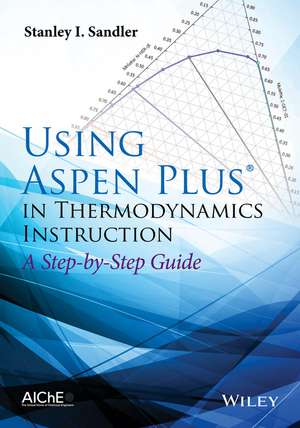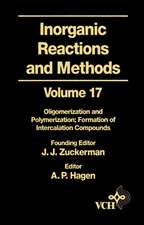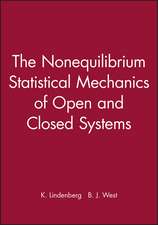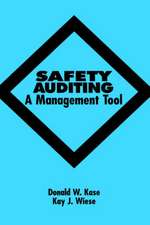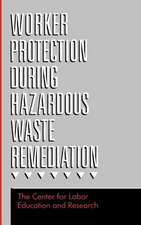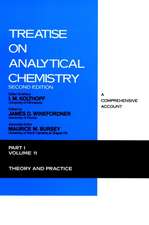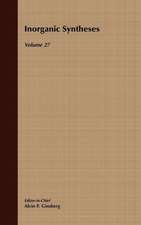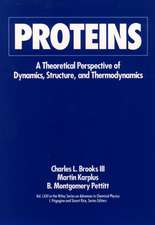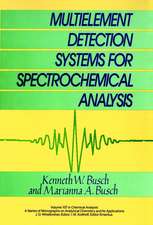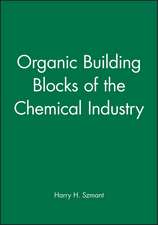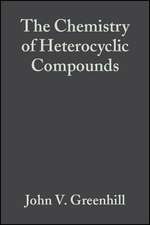Using Aspen Plus(r) in Thermodynamics Instruction – A Step–by–Step Guide
Autor SI Sandleren Limba Engleză Paperback – 18 mai 2015
Preț: 495.51 lei
Preț vechi: 643.51 lei
-23% Nou
Puncte Express: 743
Preț estimativ în valută:
94.81€ • 98.99$ • 78.47£
94.81€ • 98.99$ • 78.47£
Carte tipărită la comandă
Livrare economică 05-19 aprilie
Preluare comenzi: 021 569.72.76
Specificații
ISBN-13: 9781118996911
ISBN-10: 1118996917
Pagini: 368
Dimensiuni: 178 x 254 x 20 mm
Greutate: 0.62 kg
Editura: Wiley
Locul publicării:Hoboken, United States
ISBN-10: 1118996917
Pagini: 368
Dimensiuni: 178 x 254 x 20 mm
Greutate: 0.62 kg
Editura: Wiley
Locul publicării:Hoboken, United States
Public țintă
Undergraduate (sophomore or junior, depending on the school) and graduate students taking the required thermodynamics course(s) for chemical engineering. Also for chemical engineers (and chemists) in industry who have to deal with thermodynamics in process simulationCuprins
Preface vii An Introduction for Students ix 1. Getting Started With Aspen Plus(r) 1 Problems 9 2. Two Simple Simulations 10 Problems 34 3. Pure Component Property Analysis 36 Problems 55 4. The NIST ThermoData Engine (TDE) 56 Problems 64 5. Vapor-Liquid Equilibrium Calculations Using Activity Coefficient Models 66 5.1 Property Analysis Method 69 5.2 The Simulation Method 80 5.3 Regression of Binary VLE Data with Activity Coefficient Models 89 Problems 115 6. Vapor-Liquid Equilibrium Calculations Using an Equation of State 119 6.1 The Property Analysis Method 120 6.2 The Simulation Method 122 6.3 Regression of Binary VLE Data with an Equation of State 129 Problems 142 7. Regression of Liquid-Liquid Equilibrium (LLE) Data and Vapor-Liquid-Liquid Equilibrium (VLLE) and Predictions 144 7.1 Liquid-Liquid Data Regression 144 7.2 The Prediction of Liquid-Liquid and Vapor-Liquid-Liquid Equilibrium 158 7.3 High Pressure Vapor-Liquid-Liquid Equilibrium 167 Problems 173 8. The Property Methods Assistant and Property Estimation 175 8.1 The Property Methods Assistant 175 8.2 Property Estimation 182 8.3 Regressing Infinite Dilution Activity Coefficient Data 188 Problems 201 9. Chemical Reaction Equilibrium in Aspen Plus(r) 203 Problems 229 10. Shortcut Distillation Calculations 233 Problems 250 11. A Rigorous Distillation Calculation: RadFrac 252 Problems 271 12. Liquid-Liquid Extraction 272 Problems 286 13. Sensitivity Analysis: A Tool for Repetitive Calculations 287 Problems 304 14. Electrolyte Solutions 305 Problems 337 Index 339
Notă biografică
Stanley I. Sandler is the H. B. du Pont Professor of Chemical Engineering, Department of Chemical and Biomolecular Engineering University of Delaware. He is also the founding director of its Center for Molecular and Engineering Thermodynamics. He is the author of approximately 400 refereed papers, mostly on thermodynamics and several on education. He is the sole author of the popular textbook "Chemical and Engineering Thermodynamics" (first three editions) and now "Chemical, Biochemical and Engineering Thermodynamics" (4th edition), as well as the author or editor of 7 other books. He is the former editor of the AIChE Journal, a member of the U.S. National Academy of Engineering, and a fellow of the AIChE and the IChemE. In addition, he has received the Professional Progress, Warren K. Lewis, and Founders Awards from the AIChE and a number of international awards.
